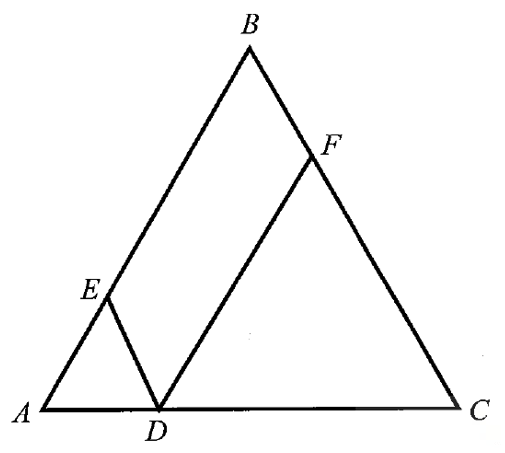DETERMINING NUMBER OF SOLUTIONS WORKSHEET
Use the properties of equality to simplify each equation. Tell whether the equation has one, zero, or infinitely many solutions.
1) 4x - 3 = 2x + 13
2) 4x - 5 = 2(2x - 1) - 3
3) 4x + 2 = 4x - 5

1. Answer :
4x - 3 = 2x + 13
Add 3 to both sides.
(4x - 3) + 3 = (2x + 13) + 3
4x - 3 + 3 = 2x + 13 + 3
4x = 2x + 16
Subtract 2x from both sides.
4x - 2x = (2x + 16) - 2x
2x = 2x + 16 - 2x
2x = 16
Divide both sides by 2.
2x/2 = 16/2
x = 8
Justify and evaluate :
Substitute x = 8 in the given equation.
4(8) - 3 = 2(8) + 13 ?
32 - 3 = 16 + 13 ?
29 = 29 ----> True
Substitute some other value for x, say x = 10.
4(10) - 3 = 2(10) + 13 ?
40 - 3 = 20 + 13 ?
37 = 23 False
Only x = 8 makes the equation a true statement and not any other value.
So, there is only one solution, that is x = 8.
2. Answer :
4x - 5 = 2(2x - 1) - 3
Use distributive property.
4x - 5 = 2(2x) - 2(1) - 3
Simplify
4x - 5 = 4x - 2 - 3
4x - 5 = 4x - 5
We find the same coefficient for x on both sides.
So, subtract 4x from both sides to get rid of x-terms.
(4x - 5) - 4x = (4x - 5) - 4x
4x - 5 - 4x = 4x - 5 - 4x
-5 = -5
When we solve the given equation, we don't find 'x' in the result.
But the statement (-5 = -5) we get at last is true. So there are infinitely many solutions.
3. Answer :
4x + 2 = 4x - 5
We find the same coefficient for x on both sides.
So, subtract 4x on both sides to get rid of x-terms.
(4x + 2) - 4x = (4x - 5) - 4x
4x + 2 - 4x = 4x - 5 - 4x
2 = -5
When we solve the given equation, we don't find 'x' in the result. But the statement (2 = -5) we get at last is false. So there is no solution.
Kindly mail your feedback to v4formath@gmail.com
We always appreciate your feedback.
©All rights reserved. onlinemath4all.com
Recent Articles
-
Digital SAT Math Problems and Solutions (Part - 148)
Apr 22, 25 08:20 AM
Digital SAT Math Problems and Solutions (Part - 148) -
Eliminating the Parameter in Parametric Equations
Apr 21, 25 10:37 PM
Eliminating the Parameter in Parametric Equations -
Quadratic Equation Problems with Solutions (Part - 3)
Apr 21, 25 02:37 AM
Quadratic Equation Problems with Solutions (Part - 3)
